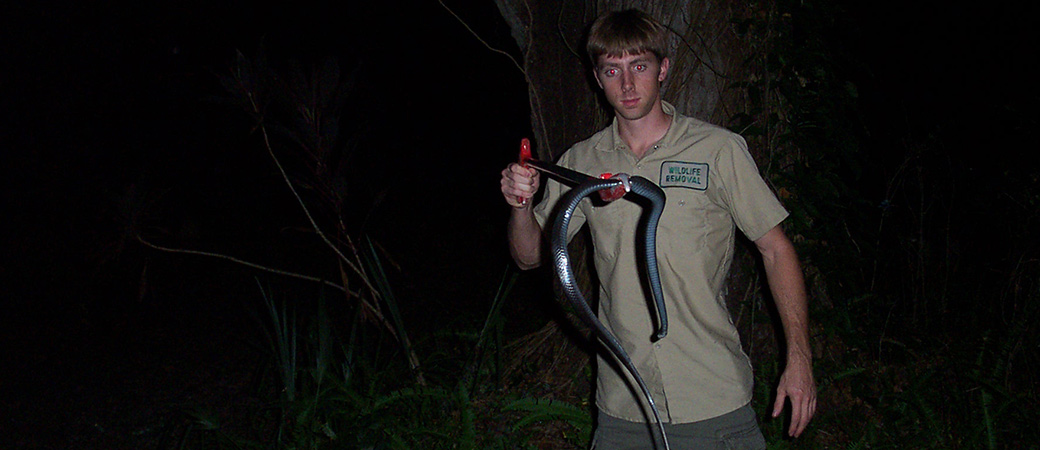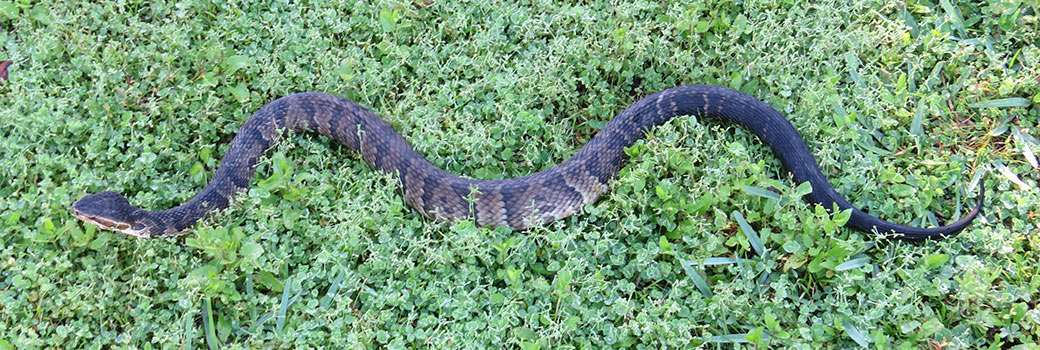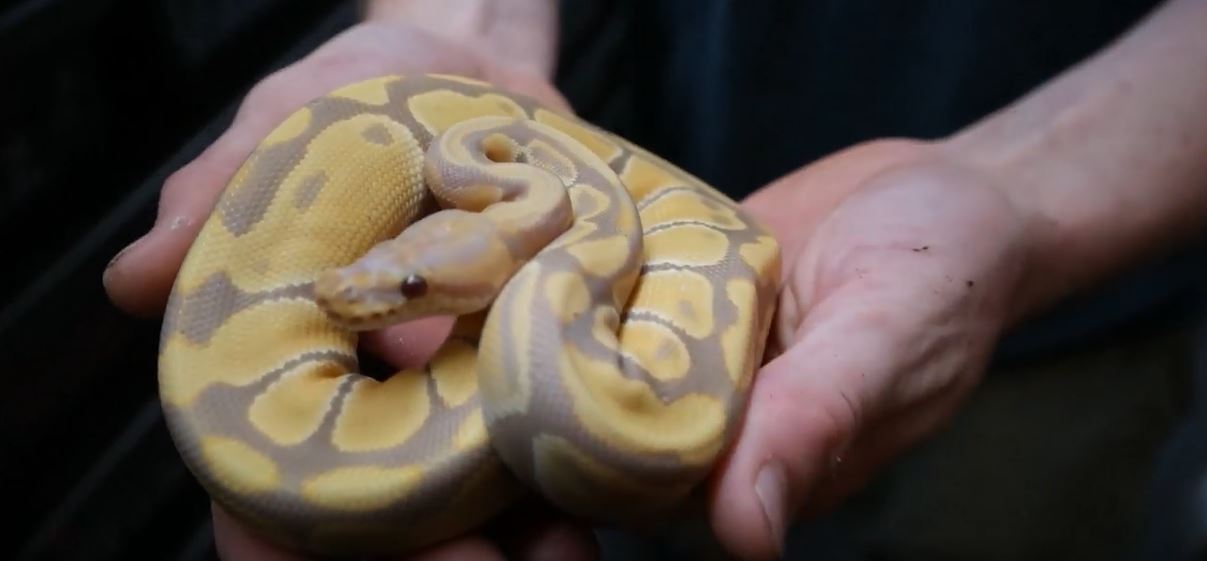How To Get Rid Of Snakes

With about 120 different snake species within North America, it is safe to say that the majority of them are harmless and don't actually pose a risk to you, your family, or even your pets. In fact, only 17 of these species are venomous so you really don't have much to worry about. Instead of being scary or dangerous, snakes are helpful. They are great at reducing the amount of vermin in your area. Despite that, most people don't necessarily want to see a snake on their property. If you do see one, there are some simple solutions you can try yourself. You can also hire a professional if you don't feel comfortable tackling the task yourself.
What Not To Do: Repellents
Whether you look online or in your local store, you are likely to find at least one snake repellent for sale. The issue, however, is that these do not work reliably. Most experts will tell you that the success stories of repellents are either fake or pure luck and professionals haven't seen them work. This is just as true of store-bought repellents as home remedies.
If you are set on trying a snake repellent, then at least stick to a natural home remedy so you don't waste money or hurt the planet. Some people suggest ultrasonic sound emitters, predator urine, mothballs, human hair, ammonia, or garlic. None are likely to give you success and some, such as ammonia or mothballs, will pose a risk to you and your loved ones.
What Not To Do: Killing
Killing a snake simply isn't a good idea and can be hard to do in a humane manner. There are lethal snake traps, but few will reliably kill the snake instantly. This leaves you with an animal suffering on your property. You will also still need to dispose of the animal once it dies. Poison is also problematic since it is unlikely the snake will eat any poisoned item as they prefer fresh food. Instead, the poison will probably hurt another animal, such as a neighborhood pet.
Prevention
Whether you want to stop snakes from coming onto your property or you finally managed to evict them, you want to be familiar with prevention techniques. The most effective and simplest prevention method is modifying their habitat. If you have debris, plants, and other hiding spots on your property, recognize that these attract snakes as well as their food sources. Take the time to clean your property, getting rid of weeds and clutter.
You can also reduce the food source for snakes on your property with rodent control methods. If your snake problem is severe, consider installing a fence. This will be a bit time consuming since the fence has to at least be flush with your ground. Ideally, it should enter the ground at an angle of 20 degrees and go two feet above the ground. You can also make a solid vertical fence that is completely flush with the ground.

Trapping
If the snake is outside of your home or in the inside, you can trap it and then relocate the animal. There are both lethal and non-kill trap and expert alway recommend the non-kill ones since they are more humane. There are multiple types of snake traps available on the market that will not kill the snake. You simply set up the trap, check it regularly, and relocate the snake. As with any time you trap and relocate wildlife, take the time to check your local regulations before doing so to ensure there aren't any restrictions in your area.
Exclusion
Trapping is ideal for snakes inside the home as well as outside. In some cases, you may be able to use exclusion as well but this can be more challenging. Exclusion will only work if the snake is in an enclosed area, such as your attic. You would then have to seal up all but one entry point without being bitten. Finally, you'd install a one-way door or other exclusion device on the remaining entrance. Keep in mind that exclusion may take a while as snakes don't have to eat frequently and it won't work if there is a food source, such as rodents, in the area already.
Depending on where in your home is, there is a variation of exclusion that can work well. Snakes are typically afraid of humans and will want to leave your house. You can close all doors except those leading to the exit. Then, gently encourage it to leave, being careful not to get too close.
Hire A Professional
When dealing with snakes, many people find it simplest to just hire a professional to take care of the issue right away. This is a particularly good idea if you aren't sure whether or not the snake is venomous since you do not want to be bitten. They will be able to identify the snake, safely remove it from your home, and relocate it according to local regulations.
Read the How to get rid of snakes page or these other pages:
About Snakes
How To Keep Snakes Away
Snake Trapping: How To Trap A Snake
Snake Repellents
How To Kill A Snake
How to get free snake removal
How to make a snake trap
Which Plants Will Keep Snakes Away?
How to scare a snake away
Do Sulfur, Lime, or any Plants Keep Snakes Away?
“TOILET SNAKES”—ARE THEY REAL??
Do Snakes Attract Other Snakes
Do Snakes Have Bones?
Do snakes have ears? Can they hear?
Home remedies to keep away snakes and get rid of them
Snakes in the Walls! How to Find and Remove Them
How much does snake removal cost?
How to get rid of snakes without killing them
for helpful information and to learn more about How To Get Rid Of Snakes


